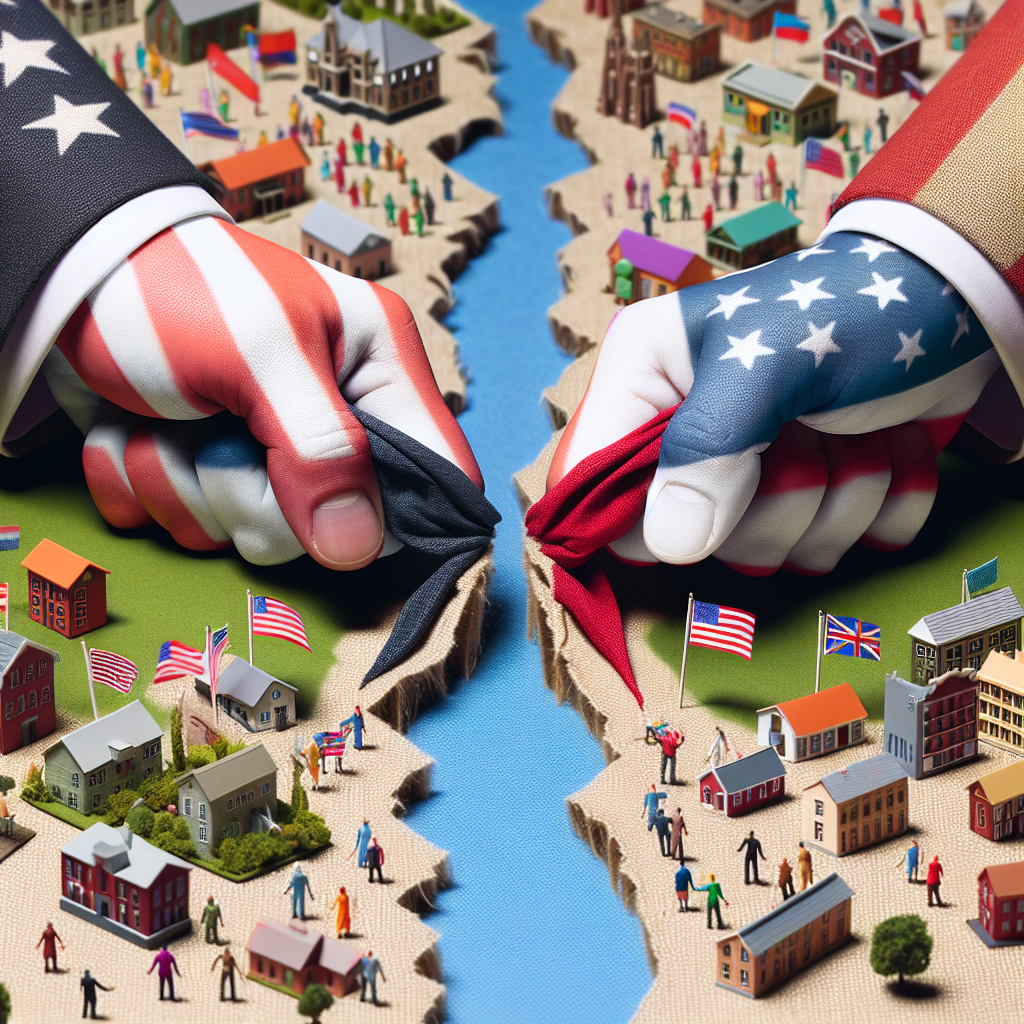The contentious nature of politics in the United States, characterized by a two-party system dominated by Republicans and Democrats, has been a long-standing issue in American electoral processes. Every four years, as candidates vie for office, this rivalry intensifies, often devolving into personal attacks and sensationalized rhetoric. Historical examples illustrate that mudslinging is not a novel phenomenon; the election of 1800 between John Adams and Thomas Jefferson was particularly vicious, with attacks centered on issues like states’ rights, taxation, and governmental overreach. This pattern of political animosity is mirrored in today’s media landscape, which often exacerbates tensions between political factions. However, it is crucial to recognize that the U.S. is just one of over 200 countries with distinct political dynamics, many of which are either stabilizing or improving while others, including the U.S., seem to be experiencing a decline.
Comparatively, the political campaigning in some countries showcases a different approach that emphasizes civility and mutual respect. Jeffrey Thomas cites the 2009 presidential debates in Uruguay, where candidates maintained a respectful dialogue even in disagreement, presenting a stark contrast to the aggressive nature of U.S. politics. This behavior can likely be attributed to societal expectations in Uruguay for candidates to embody gentlemanly conduct during elections. Politicians across the globe often reflect the sentiments of their populace; the rising inclination towards contentious politics in the U.S. resonates with a public that seems polarized and dissatisfied. Thomas suggests that the U.S. may be undergoing a deeper crisis that could escalate political, economic, and social turbulence, highlighting that politicians are, in essence, actors mirroring the prevailing public mood.
The polarization evident in U.S. politics has sharply divided the Left and Right, affecting various aspects of American life. While the vast geographical and cultural differences among U.S. states play a role in this divide, it is fundamentally driven by media representation that tends to amplify conflict, particularly during times of crisis. In easier times, cooperation among states and political factions is more likely; however, heightened tensions lead to accusations and hostilities. The media’s sensationalism often fuels these existing divisions, leading to a disenchanted electorate increasingly at odds with itself. At the same time, smaller nations find it challenging to replicate this level of division because local communities offer a more intimate political environment where leaders cannot easily manipulate voters or detach from their constituencies.
In smaller jurisdictions, such as Cayman Islands, the political environment is markedly different and generally more harmonious. With a shorter election cycle, the process is characterized by friendliness and efficiency; voters engage positively regardless of party affiliation. Elections in the Cayman Islands demonstrate a level of stability that breeds public confidence in the electoral system. Unlike the polarizing atmosphere in the U.S., where disputes are commonplace, residents of smaller nations hold a shared understanding of their candidates, facilitating a deeper connection that allows them to overlook divisive campaign rhetoric. The political discourse is informed by personal knowledge rather than sensational portrayals, leading to outcomes that reflect the community’s interests more accurately.
Furthermore, the impact of media in the electoral processes of small jurisdictions contrasts sharply with the U.S. political arena, where media can sway public opinions heavily. In the Cayman Islands, media largely plays a reporting role rather than an indoctrinating one, as the community prefers to rely on informal communication channels to inform their political decisions. This distinction helps maintain an atmosphere where the electorate remains critically engaged with familiar political figures, rather than abstract candidates they don’t know personally. This personal connection, combined with a smaller voter base, lessens the capacity for any single individual or group to dominate the political landscape.
Influence by big donors and special interests often taints the electoral integrity in large political systems like the U.S., but smaller jurisdictions experience this influence differently. While large donations occur, they are less secretive, and voters are more likely to hold elected officials accountable for their financial backers, discouraging overt corruption. Campaign donations can still sway politics, but the community’s close-knit nature means voters are more engaged and aware, helping to counterbalance the potential effects of big money in politics. Historical trends show that while smaller jurisdictions might face challenges with political influence as well, the undercurrents of transparency and community can mitigate the impact.
In summary, the contrast between U.S. political dynamics and those in smaller countries such as Uruguay and the Cayman Islands underscores the significance of community engagement in politics. Larger, more fragmented societies have the propensity for polarization driven by media and distance, resulting in an often toxic political atmosphere. Meanwhile, smaller political systems allow for a more personal connection with candidates, fostering environments where voters can directly influence their leadership. This creates a system of accountability that ultimately supports more genuine democratic practices. As societies evolve, finding paths towards increased civility and transparent governance will be crucial in combating the downward spiral witnessed in larger democracies like the United States. The focus should be on re-establishing the connection between politicians and their constituents, thereby revitalizing faith in democratic processes across varied political landscapes.

